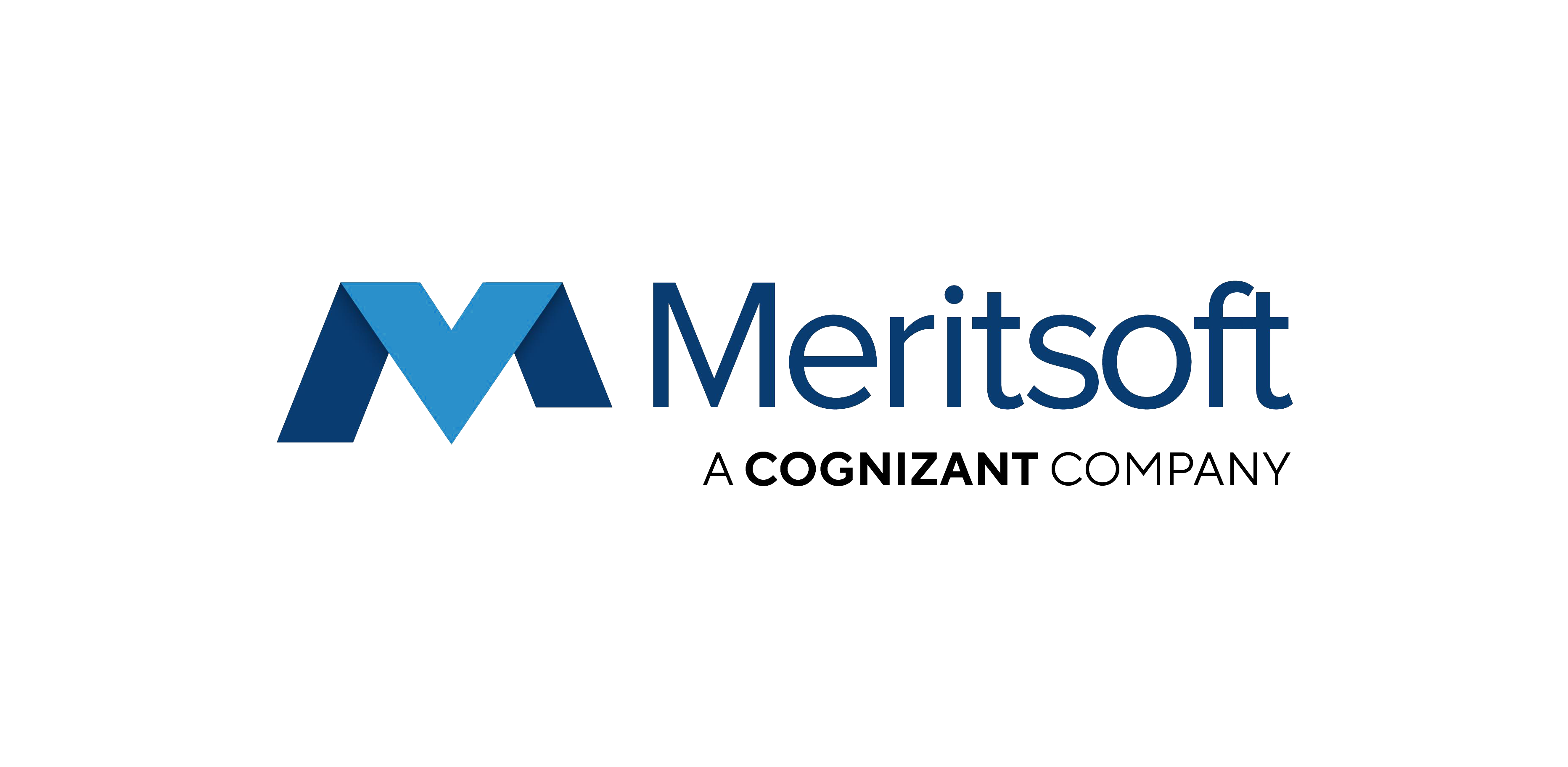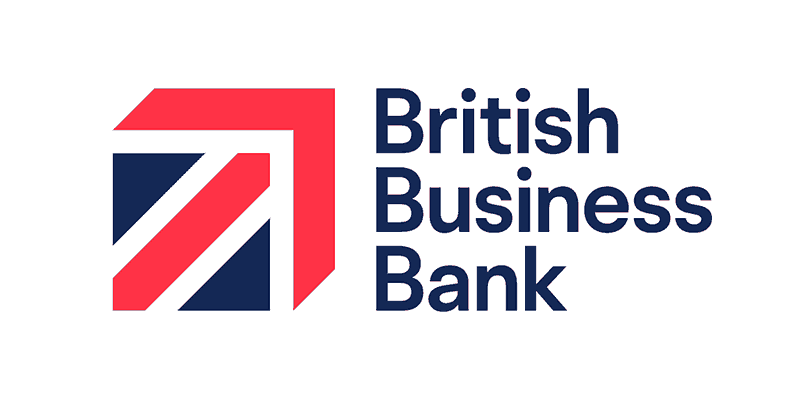Published
- 08:00 am

Global investment banks are spending vast sums each year on their brokerage fees and billing operations but data challenges, lack of automation and legacy technology make it difficult to fully understand and therefore optimise their spend across the organisation.
According to an independent survey1 conducted by Meritsoft, a Cognizant company and leading innovator in the field of post-trade process automation, these issues are impacting capital allocation, profitability and client relationships.1
Key findings highlighted in the report include:
- 88% say trade expense is a top three annual cost, with 80% of respondents paying between $250m and $1bn in 2020
- 78% cite a lack of a central data repository & 77% cite outdated rate agreements and counterparty referential data as key issues impacting operational processes
- 54% say trade expense costs and challenges have affected decisions on capital allocation, and for 45% trading profits have been reduced
- While 65% state that investment to improve their trade expense management operations is one of the firm’s top priorities, only 24% have budgets in place
A lack of firm-wide visibility into brokerage, custodian, exchange and clearing expenses is the result of under-investment in post-trade processes, which in turn means banks do not have a centralised view of relevant data and struggle to optimise this key area of operations. Significantly, with the survey revealing the impact from back office to front office, this is a key issue for senior decision makers.
Daniel Carpenter, Commercial Lead at Meritsoft, a Cognizant company:
“The challenges with trade expense management are well known in the industry. Despite awareness, many banks are yet to invest in solutions that bring greater visibility of their trade related costs. With bank operations becoming increasingly complex, through globalisation, consolidation and new asset class activity, this problem is in danger of spiralling out of control.”
“Buy-in from senior decision makers is needed to invest in data digitisation, automation and new platforms and services that allow financial institutions to get to grips with their transaction-related fees and enable cost optimisation across the business. Our findings provide a compelling business case for board members to invest in solutions that shine a light on this costly and opaque area of the trade lifecycle.”
Related News
- 07:00 am

RegTech company, Napier, provider of advanced anti-financial crime compliance solutions, names Cian Harrington as its new Global Head of Client Transformation. The firm also welcomes Aidan Houlihan as its Head of Americas and Michelle Kam as Head of Professional Services for APAC. All bring rich domain expertise and experience to Napier as it drives further growth across global operations.
With a PhD in systems architecture and engineering, Cian Harrington comes with over 20 years' experience in executive engagement, including nine years at Deutsche Bank, most recently as its Head of FIC Change. As Global Head of Client Transformation, he is responsible for transitioning Napier's global client base into its enhanced compliance software.
Taking his seat at the head of Napier’s North American base in New York City, Aidan Houlihan has more than 20 years in global financial services under his belt, having held senior leadership roles at major international banks including BNY Mellon.
Michelle Kam will lead Napier’s professional services in the APAC region. Also arriving from Deutsche Bank, where she was Chief Operating Officer, Client Lifecycle Management for APAC, Michelle brings 15 years of banking and technology vendor experience.
Julian Dixon, Napier CEO, commented: “We are dedicated to supporting our growing roster of customers around the world with AI-enhanced technology. As the complexity of financial crime continues to evolve, we are proud to have Cian, Aidan and Michelle join our expert leadership team.”
As partner of choice to companies including Dow Jones, Australia Post and Refinitiv, Napier doubled its annual revenues in 2020 by providing tier one banks, payment services, FX, crypto and other financial institutions with its award-winning AI-enhanced platform for intelligent AML and trade compliance.
On his appointment, Cian Harrington said: “Napier is an exciting place to be right now, and I am delighted to be leading client transformation as we continue to redefine the way that global institutions combat financial crime.”
Aidan Houlihan commented: “As the trusted technology partner for so many organizations, I’m thrilled to be at the helm of our expanding Americas team. We’ll continue to provide world-leading and AI-led solutions that help to empower compliance teams.”
Michelle Kam expressed: “There is currently enormous interest in cutting-edge technology like Napier’s in the APAC region, and I am excited to be leading the team in delivering innovation with real impact.”
Related News
- 03:00 am

London’s highest rated IT service provider, has today announced that they have been appointed as the IT service provider for the UK’s largest EdTech firm, Multiverse, which is owned by Euan Blair, son of ex-Labour party leader and Prime Minister Tony Blair.
The retained agreement sees Totality Services supporting over 300 staff members globally. Totality Services are working closely with Multiverse across internal IT services, including, full IT support (onsite and remote), IT security, disaster recovery and business continuity solutions.
Multiverse (previously WhiteHat) is an EdTech start-up focused on high-quality education and training through a unique apprenticeship model. Founded by Euan Blair in 2016, Multiverse matches talented individuals with careers and delivers world-class training in a wide range of qualifications in leadership, digital, and technology.
Multiverse works with over 300 businesses, helping them embrace digital transformation, close skills gaps and develop a diverse talent pipeline. Apprentices benefit from one-to-one coaching, applied learning, and a community of social, networking and leadership opportunities.
Luis Navarro, Co-Founder at Totality Service, said: “We’ve been supporting Multiverse since May 2020 and it’s great to be finally announcing our long-term partnership and plans to work together on smarter IT solutions for their business.
“We’re extremely proud to be working with Multiverse as their trusted IT support provider. We’ll be working closely with their staff to ensure that they are receiving the highest IT service possible.
“Since we began supporting Multiverse’s team last year, we have continuously been given five-star ratings through Feefo, the most widely recognised independent seal of excellence. Their team has grown nearly three times in a year, and despite the exponential growth, we have continued to provide the highest quality service available.”
Libby Dangoor, Chief of Staff at Multiverse, said: “In the past year we’ve expanded rapidly in both the UK and US, delivering our outstanding alternative to university and corporate training remotely to thousands of future leaders. This scale, combined with the shift to remote delivery driven by the global pandemic, has only raised the importance of fast and effective technology support for our team.”
Related News
- 06:00 am

ESG stays in favor of institutional investors, and while aiming to achieve adequate returns, investors increasingly commit themselves to create a positive societal impact with their investments, too. Now, Metzler Asset Management GmbH, one of Germany’s asset managers with the longest time-honored traditions, in cooperation with Solactive, is launching the index-linked fund Metzler Global Ethical Values (ISIN: DE000A2QGBH0). The mutual fund with marketing authorization in Germany and Austria is managed close to the index and tracks the Global Ethical Values (GEVX) share index, which Metzler Asset Management designed and developed jointly with Börse Hannover (Hanover Stock Exchange) and Solactive. The fund will start trading timely after September 22nd on Hamburg Stock Exchange.
The Global Ethical Values Index (GEVX) represents companies that comply with ethical, ecological, social, and governance standards. Furthermore, the foundation of exclusion criteria is based on both ethical and sustainable ideals of the Catholic and Protestant church in Germany and the Catholic church of Austria. Furthermore, climate-based selection criteria exclude, for example, businesses active in fossil fuels and coal-based power generation. Currently, this selection results in an effective reduction of carbon emissions by 40% within GEVX, compared to the fund’s benchmark, the Solactive GBS Developed Markets Large & Mid Cap Index[1].
In addition to an exclusion-based approach, a combination of best-in-class and best-in-progress selection methods accounts for a holistic implementation of ESG criteria into the fund’s stock selection. While the best-in-class approach identifies companies with the highest ESG performance, the best-in-progress method incentivizes those companies that have made the most exceptional advancement in dealing with challenges in the social field or climate change in recent years. Moreover, the index holds a sophisticated weighting mechanism, which keeps its region and sector weights in line with its benchmark. This procedure provides investors with a high degree of diversification without sacrificing the exposure to companies complying with the high ESG standards.
Timo Pfeiffer, Chief Markets Officer at Solactive, comments: “ESG investing is at the heart of the financial markets, and standards often differ by region and different investor types. The new Global Ethical Values Index, which we created jointly with and for Metzler and Hanover Stock Exchange, here at hand focuses on German institutional investors, in particular churches and foundations, and their respective sustainability criteria. We are very pleased to be part of this project, which we are convinced will create a positive impact on society and the environment.”
[1] Measured by the ø GHG emissions caused per EUR 1 million in sales.
Related News

aoufik Sakhi
Smart Mobility Technical Advisory Director at Fime
Today, contactless cards provide a fast and frictionless payment experience, where up to a certain value, the normal cardholder verification method of entering a PIN is not needed. see more
- 07:00 am

cheqd – a start-up whose technology could drive widespread uptake of digital IDs – has secured a $2.6m (£1.9m) investment to support the launch of its product later this year.
The latest funding round was backed by Outlier Ventures, Evernym, TitanBlock, Torque, 3GR and a consortium of private investors. It follows their initial investment in March this year and brings the total raised by the company to $3.3m (£2.4m).
cheqd’s software enables individuals to have their own digital ID that they can store on their mobile phone and use to verify their identity or information such as their qualifications, vaccine status or credit history. Like a passport or driving licence, it would be ‘signed’ by a trusted authority and accepted as proof of status by other organisations without the need to check the individual’s details on a central database.
The technology, which is based on blockchain, has been developed by a team led by Fraser Edwards and Ankur Banerjee. It is unique in that it not only enables organisations to create a digital ID, but also incorporates a payment system so they can charge users a fee to cover the cost, encouraging wider uptake. So for example, a bank that had carried out background checks on a new customer could provide him or her with a digital ID that they could use at other banks to avoid repeating the process.
Self-sovereign identity (SSI), as the concept is known, could be key to unlocking access to banking, government benefits or other services and research suggests it could boost economic growth by 3% in the UK in 2030. It also safeguards privacy by removing the need to store personal information on a central database and giving the individual control over what information they share.
Founders Fraser and Ankur - who met while working as analysts at Accenture in London - have spent the past seven years managing emerging technology projects and were selected to take part in Outlier Ventures’ Base Camp in spring 2021. The business currently employs a team of eight and is on course to launch its first product later this year. It will be aimed at tech firms developing digital ID solutions, as well banks, universities, hospitals or other bodies that issue credentials and may want to offer them in digital ID format.
Ankur Banerjee, the CTO, says digital IDs could save the time and cost involved in carrying out repeated background checks: “Covid accelerated uptake of digital technology but the question is, how do you prove your identity and build trust in an online world? Digital IDs give people control over their credentials which makes it easier and cheaper to verify their identity which makes banking and other services more accessible.
“However until now uptake of digital IDs has been limited because there is no business model that allows providers to charge for creating them. cheqd makes this possible for the first time and could act as a catalyst to encourage wider uptake.”
Fraser Edwards, CEO at cheqd, added: “cheqd aims to build the trusted data economy to give people and organisations back their privacy and control of their data. We would like to thank all the investors who share our vision and brought us this far. The strong interest we have had from investors signals that the market is ripe and there is a big demand to address the data security, privacy and trust issues linked to our identities.”
Jamie Burke, CEO at Outlier Ventures, added: “You can't have Web 3.0 without a form of decentralised identity that works at scale and has a business model for network participants hardcoded into it. That’s why we firmly believe in cheqd’s mission as they enable SSI.”
Related News
- 08:00 am

Related News
- 04:00 am

Strategic collaboration to ensure a seamless identity verification process for PayU merchants
PayU, the payments and fintech business of Prosus, today announces its collaboration with AU10TIX, an identity management company, to screen customers and ensure a frictionless onboarding process.
The PayU-AU10TIX partnership will streamline the merchant onboarding process by utilising AI and automation to rapidly authenticate identities. The new service will be used to verify the identities of individuals or representatives of businesses connecting to PayU directly or via marketplaces powered by PayU’s payments solution.
PayU’s partnership with AU10TIX means that identities can be validated in seconds, enabling PayU to maintain its reliable and efficient merchant onboarding and re-verification processes. As the risk of criminals using online platforms to conduct illicit activity increases, this collaboration will also ensure that PayU’s processes remain streamlined and secure for both shoppers and merchants, further strengthening PayU’s crime-prevention capabilities. With AU10TIX’s innovative technology, PayU can continuously optimize its services to ensure more accurate identity verification, increased automation levels, and greater security for fighting the latest fraud attack vectors.
AU10TIX’s deep learning algorithm knows when an ID is manipulated, and the partnership with AU10TIX will further allow PayU to overcome the growing threat of synthetic identities. Using automated and innovative technologies may also allow PayU to introduce additional measures to further strengthen security in the future.
The AU10TIX integration has initially been implemented in Poland and Czech Republic and will soon be introduced across EMEA markets and elsewhere around the world, including Latin America which has seen an e-commerce boom since the start of the pandemic.
Andrzej Bassara, Chief Operations Officer of PayU: “The number of international merchants cooperating with PayU is growing exponentially, necessitating collaboration with companies like AU10TIX, a market leader in identity verification, to offer our clients the most efficient on-boarding and re-verification process.”
“AU10TIX is meeting our customers’ expectations around security by offering an automated solution that utilises advanced AI to accurately authenticate identities without the need for a human agent to review. An automated ID authentication process will rely upon an algorithm which will allow for customers’ identities to be confirmed in real time, making PayU’s processes more streamlined and secure.”
Carey O'Connor Kolaja, CEO of Au10tix: “Preventing identity fraud is at the core of what we do at Au10tix, and we are delighted to support PayU in their efforts to automate the merchant onboarding process. Our collaboration will ensure that PayU can continuously offer their users a safe and secure experience, while increasing the efficiency and pace of the processes to confidently verify identities.”
Related News
- 02:00 am

Related News
- 06:00 am

Catherine Lewis La Torre, CEO, British Business Bank, said: “Throughout 2020/21, in response to the pandemic the British Business Bank performed a role vital to the UK government, finance markets and the economy as a whole.
“Our financial support to smaller businesses has increased by more than £80bn during the last financial year, and now stands at nearly £89bn.
“We look forward to using our unique position in the market to support businesses further as they recover and return to growth once more, thereby rebuilding the foundations of the UK’s future prosperity.”
The British Business Bank, the UK’s national economic development bank, today publishes its 2021 Annual Report and Accounts.
Key highlights
The Bank’s performance against its six objectives in the last financial year was as follows:
· Increasing the supply of finance to smaller businesses – The stock of finance supported through the Bank’s core finance programmes was £8.506bn at the end of March 2021. This was below its target of £9.085bn due to displacement of existing programmes by Covid-19 emergency finance schemes. These offered £80.4bn of finance to almost 1.7m businesses. This emergency support, which is not included under the Bank’s core programmes, was evenly distributed across the Nations and regions of the UK.
· Helping create a more diverse finance market for smaller businesses – 94.5% of the finance supported by the Bank’s core finance programmes in 2020/21 was delivered through smaller, newer or alternative finance providers, exceeding its 94.0% target.
· Identifying and helping to reduce regional imbalances in access to finance – The Bank’s flow of gross deployment outside of London was £943m, over 8% above its target of £868m. The Bank announced 78 new delivery partners across its programmes, bringing the total number of providers it was working with to 218 at the end of March 2021.
· Encouraging and enabling SMEs to seek the finance best suited to their needs – Prompted awareness of the Bank amongst SMEs surveyed was 25%, meeting the target set. 41% of SMEs surveyed said they would consider contacting the Bank for information about finance, marginally below the target of 42%.
· Being the centre of expertise on smaller business finance in the UK, providing advice and support to the Government – The Bank was independently assessed as having deployed its expertise to government effectively, ranging from advice on Covid-19 scheme development and delivery to fulfilling priorities on research and market engagement. The Bank published six major reports, including Alone, together: Entrepreneurship and diversity in the UK.
· Achieving its other objectives while managing taxpayers’ money efficiently – The Bank achieved an adjusted return of 14.6%, significantly exceeding its 0.10% target. This was driven by the generally strong performance of equity finance markets in 2020/21.
Core programme highlights
- The Start Up Loans programme had a record year, providing over 11,000 loans – a year-on-year increase of over 30%
- The Bank’s regional funds – the Northern Powerhouse, Midlands Engine and Cornwall and Isles of Scilly Investment Funds – provided a £357m flow of finance into their regional finance markets in 2020/21.
- The Regional Angels and Enterprise Capital Funds programmes made combined total commitments of £100m to support seed and early stage equity funding for high-growth businesses.
Revised mission and new climate change objective
In this year’s report the Bank also announces a revised mission and a new climate change objective:
Revised mission – ‘To drive sustainable growth and prosperity across the UK, and to enable the transition to a net zero economy, by improving access to finance for smaller businesses.’
New climate change objective – ‘To support the UK’s transition to a net zero economy.’
These changes reflect the Bank’s commitment to playing an active role in driving a more sustainable economy.
Lord Smith of Kelvin, Chair of the British Business Bank, said: “Our job now is to help businesses during the recovery period and beyond, strengthening the economy in the process. We are emerging from the pandemic more resilient and capable than ever, ready and willing to help more UK businesses to prosper and grow sustainably.”
About the British Business Bank
The British Business Bank’s core programmes support over £8.5bn of finance to almost 95,000 smaller businesses. Between March 2020 and March 2021, the British Business Bank was responsible for running the government’s Coronavirus business loan schemes, delivering more than £80bn of finance to almost 1.7m businesses.
As well as increasing both supply and diversity of finance for UK smaller businesses through its programmes, the Bank works to raise awareness of the finance options available to smaller businesses. The British Business Bank Finance Hub provides independent and impartial information to businesses about their finance options, featuring short films, expert guides, checklists and articles from finance providers to help make their application a success. In light of the coronavirus pandemic and EU Exit, the Finance Hub has expanded and it now targets a wider business audience. It continues to provide information and support for scale-up, high growth and potential high growth businesses, but now provides increased content, information and products for businesses in survival and recovery mindsets. The Finance Hub has been redesigned and repositioned to reflect this, during this period of economic uncertainty.
British Business Bank plc is a public limited company registered in England and Wales, registration number 08616013, registered office at Steel City House, West Street, Sheffield, S1 2GQ. It is a development bank wholly owned by HM Government. British Business Bank plc and its subsidiaries are not banking institutions and do not operate as such. They are not authorised or regulated by the Prudential Regulation Authority (PRA) or the Financial Conduct Authority (FCA). A complete legal structure chart for the group can be found at www.british-business-bank.co.uk









